- Home
- Joseph Boyden
Wenjack Page 3
Wenjack Read online
Page 3
Dark will come fast now and so I look for places to sleep as I leap from wood to wood, the smell of it making me dream hot summer and playing with my two nimiseyag near the tracks and the big shining water where we live. I will get home. I will. But the wind blows hard and cold at my back and I’m tired and I’m dreaming more than walking from wood to wood and my foot doesn’t pay attention and doesn’t make the step it needs to so that it catches wood instead and I can’t stop from falling, my forehead cracking on the track.
Bright light like staring into sun and the little wait till the hurt explodes and I touch my head and my hand is red. Don’t move. Just wait. Wait. The pain will go. My nose to tar wood and eyes to crushed rocks. Just wait. When I can push up and sit again, the wind howls with laughing.
Dizzy, me, walking now. It’s time to find a place in the trees and use a match for a fire. Up ahead and then down the small hill of the tracks I see where amik lives, a beaver pond and beside it a stretch of trees that will help stop the wind. I know this will be a good spot. Fallen trees to hide in.
Close to the pond, amik slaps its fat tail to let the others know I’ve come. Another answers with a slap and the sound of water echoes. My father’s nindede, my nimishomis, when he trapped amik in his snare, used to throw the tail on the fire until it bubbled and turned real black and then he peeled away the skin and ate the whole thing. He was the strongest man in the world, my nindede says, because this is what he ate. Oh, if only amik would give me his tail.
Cracking of dry twigs and handful of moss and the scrape of one match on rock and a little fire comes alive. I found a place, me, under gaawaandag spruce and I think I might be all right tonight. Fingers on my forehead. The bump is ever big but it’s mostly stopped bleeding. I taste the bit of blood because there’s nothing else to eat.
I pile sticks onto the fire and close my eyes. So tired but cold and hungry won’t let me sleep too easy. Count backward from that number five.
Naanan
Niiwin
Niswi
Niizh
Bizhig
Then do it again.
Naanan
Niiwin
Niswi
Niizh
Bizhig
Then do it again.
Naanan
Niiwin
Niswi
Niizh
Bizhig
The slap of amik tail is the slap of teacher across my face. The other children stare at me. I spoke out loud in the class in my tongue because I forgot what Nindede warned me.
Nimaanendam! I say but it comes out with my tongue not his. I mean to say I am sorry, I say, and he slaps me again so I fall out of my chair. I meant to say it in English, I try to tell him, but my tongue came out instead. I’m sorry, I say from the floor. He thinks I make fun and he grips my hair in his fist and drags me out the room and down some stairs and to the dark basement that scares us all to dying. He takes the key from the metal ring on his waist and he opens a door and pushes me in. I wait for him to close the door, tiny light and a skinny mattress on the floor covered in yellow stains.
Take off your clothes.
I shake.
He walks to me and his hand meets my face so I taste red. I remove my shirt. He waits. I remove my shoes. He waits. I remove my pantses. He waits then he picks them up and takes them away and locks the door.
Nothing I can do in the cold dark but shiver. Try not to cry. Please don’t cry. Please. Daga. Afraid. Ningotaaj. Cold. Ningiikaj. I sleep. The door cries and I wake. Dark but he is a tall shadow staring down at me. He lies down beside me on the skinny mattress that smells of old pee and he takes me in his arms and holds me. His skin is gizhaate. Hot. His skin glows like a fish belly in the dark. Ozhaawaa. He pushes himself against me. He smells like the colour called brown. He pushes me on my stomach. His mouth. Nindoon. On my back. Nipikwan. Hurt. He hurts. Don’t hurt me. Please don’t hurt.
SNOW GOOSE
The boy, Chanie, shakes as the first sleet begins to fall that eve. He sleeps fitfully, and in his dream the sleet that soaks him is the sweat of the teacher pounding above. His pathetic fire douses, and fat and full we who have become a wood tick extract tiny fangs from his calf and take our time crawling out from the worn pants of the boy. He will awake soon and will experience the most miserable night of his young existence, near frozen to death by a beaver pond, a small flock of snow geese come down from the skies to take watery respite from those that would hunt and eat them, their stark white-feathered bodies huddled in the black centre of the pond.
The beavers work through the darkest hours and pay no mind to the strange shivering human nearby. They know what awaits him, and there’s nothing for them to do but ply the night till dawn, to chew through poplar and balsam and birch to stunt their teeth, to keep those teeth from growing so fast and long that the bottom ones will curve and eventually pierce the top of the skull if beaver were ever to turn lazy. They listen for breaks in the dam, the sound of flowing water as much an enemy as the prowling timber wolf nearby. The beaver family tenses to waddle as one back into their pond’s safety when they hear the waking gasp of the boy, a cry of pain and of fear and, for the first time, the bawl of understanding what mortality means.
There’s nothing for us to do now but watch the boy push himself up and into a crouch, thin arms wrapped about torso as sleet turns to snow then back to sleet again. His body temperature in the darkest hours of night drops as close to what a human can withstand before his system beckons coma to keep the sluggish blood pumping, extremities of the brown-skinned boy a sickly yellow white. We wait and witness the body quakes. The tremors. The quakes again. Blood pressure drops with temperature and our dark eyes refract no light. But as mornings must, this last one returns. Not with the sun but with a simper.
We watch as Chanie forces himself to a stand and stumbles away from the beaver pond and to the tracks to continue his slow walk. The sleet has stopped but the sky hangs thick with dark cloud, and a north wind is just beginning to sing in earnest. Chanie is right in remembering his family lives near the railroad tracks by big shining water, but what he does not fully understand is that home is hundreds of miles away.
Those of us who choose to become snow geese now rouse ourselves with our discordant song and pedal webbed feet to shore, scouring for a bit of sustenance to help us on our flight south. One of us pecks near where Chanie slept, roots out bits of green in the brown, eyes and pursues the engorged wood tick that tries to burrow under leaves, then swallows him with a satisfied click of beak before digging deeper for more.
Lead goose in pond lifts and ruffles wings. Time to fly to beat more coming weather, and so she pushes hard with webbed feet and commands wings to pound the air, neck pointed straight in the direction she must go until she begins her lift, webbed feet now running across water as wings work harder and she catches a small draft that lifts her up above the spruce and poplar and Precambrian spine as ancient as the world, the others following, none wanting to be left behind, until we form a V in the air and allow long white flight feathers their work.
We peer down at the boy, a dark speck on the tracks below, honking out a greeting to him, letting him know we see him, that we witness his lonely walk now a torture. As we follow the tracks that cut through rock and muskeg and bush we talk back and forth among ourselves about how far we think the boy can go before his body fails. Not far. Our shining eyes catch the day’s low light and we can see how these tracks we follow from above stretch impossibly across the harsh earth. For all the chance he has we might as well try to fly to the near-full moon that plans to appear, if only briefly, tonight.
We honk a few more greetings and garbled words of encouragement to the boy before veering away from the tracks and south to where we, at least those of us who survive the journey, will find a bit of warmth. There won’t be any more warmth for young Chanie until he meets the last of us late tonight.
RABBIT
I can see more bad weather coming. Walking has
made me a bit warmer but my clothes are wet. Nindede would tell me to get them dry now and build a shelter till I can feel a bit stronger again. But everything is so wet. Gaawiin. No. My map. I reach into my pocket and can feel it tear when I touch it. Gentle. Stop. Take shaking hand and try to take map out proper. It tears I shake so hard. It’s ruined. Gaawiin.
Ever stupid, me! Ever stupid! Why didn’t I roll it up in the small glass jar with the matches? I reach my hand in my pocket and squish the map with my fist. Water between fingers. I take it out and open my fist. I stare. This is their map. This is not mine. My map is this wood and the two lines and my map is walking till I’m home. I don’t need their stupid map. I throw it like a ball and the wind from giiwedinong takes it to it, to the north, and like I asked it to happen, snow starts coming down. Build a fire now, I hear Nindede say.
A dead tree down the small hill. Breaking of twigs but no dry moss and then I remember the paper that wrapped the meat of mooz. It feels dry. Water drips off it when I take it from my pocket. I squeeze the paper in a ball and lean over it and take out the match jar and then a match and I light it on my zipper and my lean stops the snow from falling on it. Touch match to paper but paper doesn’t want to. Just turns green for a bit and then smoky. Second match. Second light. Paper’s ugly. It won’t take fire into it. Four matches left. Then three. Stop. Save them. Walk to get warm. I can feel me getting slow. I must get up. So cold and yet my body doesn’t want to move. Move.
Then I see it staring at me just a few feet away. It’s been staring at me for how long? Waabooz. Big ears up and brown fur already beginning to turn its winter white. Long feet ready to jump it away. We look at eyes for a while. I never knew this feeling before. Waabooz the rabbit isn’t scared of me. Waabooz looks sad. The snow falls in little hisses in the trees and we look at each other and there is no more fear. Waabooz finally turns and jumps slow away.
On the tracks I fall one time. Bizhig. Two times. Niizh. Three. Niswi. I don’t feel the hurting anymore. The snow stops and starts and stops. The day becomes afternoon becomes darker becomes dark. I slow walk. Ever slow. One wood. Two woods. Three. I fall again and try so hard to push back up.
My hands shake as I step into night. Nindede and me, we once checked our snare to find waabooz so new in it that his long hands and feet still shaked like mine do now. I try to imagine being him, wearing his brown fur turning white. I shake.
Above me the clouds tear open to the moon. It’s almost full. I can’t stop now or I won’t get up. My feet work slow and I look at moon when I can. Everything so heavy. Shaky. Slow. Feet work. Feet please work. Feet. Ninzidan.
Ninzidan drag and the sky spins and moon smiles at me and I’m falling. Oh. Hurt. On my back. My front. My back. My front. My back. Beside the tracks. Moon above me smiles. Hands and feet shake. White breath. So cold. Ever cold. Nindede taught me how to find north. I hear him say it. Gimik-wenden-ina, Chanie? Do you remember? I do, Nin-dede. That star. Anang.
They’re watching me from the edge of the bush. I can tell. They been following me since the school went away from me. Me from it. What’s the word for them, for what follows me, Nindede?
Manitous. No English word for that. Where are you going, Chanie? Nindede asks. He looks so sad. Aandi ezhaayan? Where are you going?
I’m going to go, me. Giiwe. Home.
My hands shake and my feet shake and there is no more getting up. I am waabooz in his snare. I shake. Shake. Think your words. Speak your words. Head. Nishtigwaan. Cold. Gisinaa. Warm. Ningiizhooz. No. Gaawiin. Yes. Eya’. Nose. Injaanzh. Eye. Nishkiizhig.
Father. Nindede. Heart. Ninde’. Father. Nindede. Heart. Ninde’. Father. Nindede. Heart. Ninde’. Father. Heart. Nindede. Ninde’. Nnnnnnn.
LYNX
We follow Chanie all day on our great slippered feet of fur, stopping once to pounce on the slowest snow goose as the small flock lands for afternoon rest, and again for a quick chase of snowshoe hare dazed by what it saw in the young boy’s eyes. Today is not a difficult one, if only in the sense that we don’t feel challenged by what we stalk. Boy’s step is so slow it makes us lazy, our pursuit of prey one of boredom more so than need.
As dusk becomes night, Chanie shaking and stumbling and weakened by cold and hunger, we pay special attention. The time for us to act is near. He summons the hare to let us know that soon he will be ready for the lynx’s embrace. Rabbit is our favourite sustenance, after all.
And when he stumbles and falls along the slick steel of tracks, the near-full moon splitting open the clouds above, we watch with yellow eyes, retinas glittering in that orb’s light, young Chanie roll down the embankment of rocks and then stare up at our brethren that inhabit the sky.
We watch his breath slow, white in the darkness as he speaks his words, those words born alive, tangible in his frozen puffs. Hot moisture of breath meeting the freeze become signals to the world that Chanie is still here.
And then with a shiver, a kick, he’s gone.
We must move quick, for great actor brother moon begins his final call before night’s curtain is drawn, the clouds who will soon envelop him beginning their skitter. Wary, we leave the cover of trees and the perch from where we watch.
We who choose so become the mother, this greatest of the lynx, her shadow so large in waning moonlight that even the best two-legged hunter grown strong on beaver’s rich tail would shake in fear if he were to witness her slink toward the boy. The little warmth left in the child crystallizes on his lips and our twitching nose lowers to breathe in the scent. Long and rough tongue licks his whitening cheek, his ears, his forehead, his eyes.
And now as cloud curtains shut on this lonely performance, moon bowing to the darkness, a snowstorm squalls through the cut rock of tracks, covering a country’s shield where Chanie lies, great lynx protective above him.
We watch as the lynx through a thickening screen of snow stands up on her hind legs to look down upon the child. She reaches her long arms to take him in her paws and then lifts him up and into her embrace. As the snow falls thicker, she wraps him more tightly to her so that he may feel again, and with the first true snow of the season falling now, whipped by the wind through the canyon cut out of rock, the mother lynx waltzes Chanie warm in her fur-clad arms and into the forest, away from the tracks.
We watch patient as day breaks clear and cold, snow melting when sun rises higher so that by early afternoon when the thundering chug of an approaching train sounds, Chanie’s still body is exposed. The engineer slows as much as he’s able and stares down upon the frozen Indian boy just feet from the tracks. He radios the sad find in and pushes the engine to speed again.
Hours later, a few pale authorities arrive to snap pictures and collect the body. They note in photographs how the boy lies upon his back, his thin clothing soaked, his feet turned inward, not out. They find little in his pockets except a handful of chewed red willow twigs along with a small screw-top jar containing a few wooden matches. When the little they can collect is collected, they roll the body into a sheet and begin the trouble of carrying it out. And when it’s convenient, which turns out to be weeks later, their notification to the deceased’s family will be the return of said deceased in a thin casket, remains enclosed, back to his people and to his home.
In the forest, we dance in a great oval that contracts and expands as breath draws in, draws out. Owl and mouse and wood tick, rabbit and pike and beaver. Hummingbird, crow, snow goose and spider. Mother lynx and Chanie we call to the centre to honour proper, and we revel in the world we’ve created around them. Sun rises to test the moon and moon rises to rest the sun. And still we watch. We watch the boy warm in our presence, watch him dance and eat and share his shy smile, his dark eyes turned darker and sparkling.
AUTHOR’S NOTE
The real-life Chanie “Charlie” Wenjack was forcibly taken from his parents and his sisters and his home in Ogoki Post, Northern Ontario, in 1964 when he was nine years old. He asked his sisters to please look after his two beloved
dogs until he returned from Cecilia Jeffrey Indian Residential School over six hundred kilometres away in Kenora. None of them knew how long he’d be gone. Chanie came home two years later in a casket.
Chanie wasn’t, by a very long shot, the only child to leave for residential school and never return. Many thousands of children died during their time in these alien institutions—from disease, from abuse, from exposure or accidents while trying to run away. The true number of children who died under the watch of those responsible for their care will never be known. Proper records were purposefully not kept. The death of these countless innocents remains one of the deepest, most brutal stains on Canada’s history. More than six thousand dead children’s names have so far been uncovered, but there are thought to be far, far more, many of them buried in unmarked graves near the residential schools that pocked our country.
From the 1870s until 1996, when the last school closed its doors, more than 150,000 Indigenous children over seven generations were removed from their families in an attempted cultural genocide. Chanie, for me and for a number of others, has become a symbol not just of this tragedy but of the resilience of our First Nations, Inuit and Métis people—which is why I use the word “attempted.” Our cultures were forced underground for a long time, but they have re-emerged despite the odds. And they are thriving once more.
Ian Adams wrote “The Lonely Death of Charlie Wenjack” for Maclean’s not long after Chanie’s tragic death in 1966; up to that point, it was one of the few times that a national publication had exposed this dark national secret. And Chanie Wenjack couldn’t have known it, but that sweet boy forced the first public inquiry into residential schools in Canada. At the conclusion of this inquiry, the all-white jury unanimously questioned not just the philosophy but also the morality behind residential schools…although it would take another thirty years for the last institution’s doors to be shut.

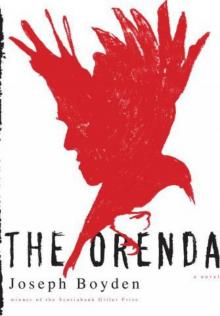 The Orenda
The Orenda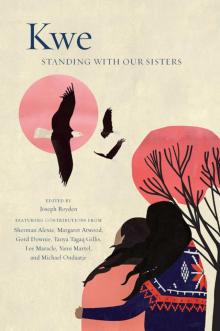 Kwe: Standing With Our Sisters
Kwe: Standing With Our Sisters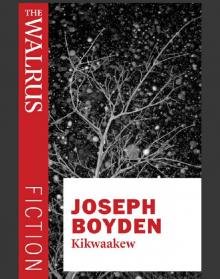 Kikwaakew
Kikwaakew Through Black Spruce
Through Black Spruce Three Day Road
Three Day Road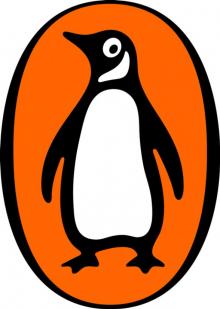 Born With a Tooth
Born With a Tooth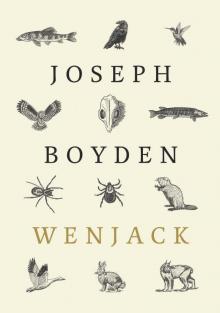 Wenjack
Wenjack Louis Riel and Gabriel Dumont
Louis Riel and Gabriel Dumont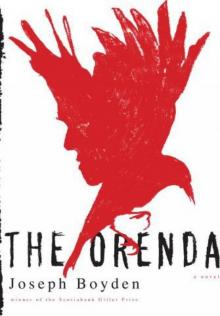 The Orenda Joseph Boyden
The Orenda Joseph Boyden